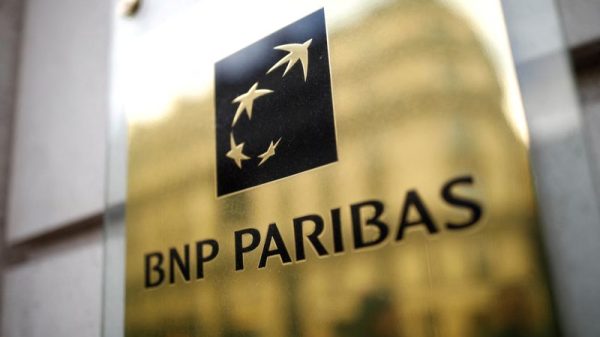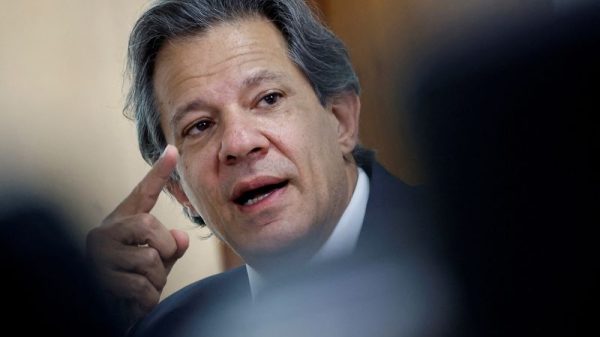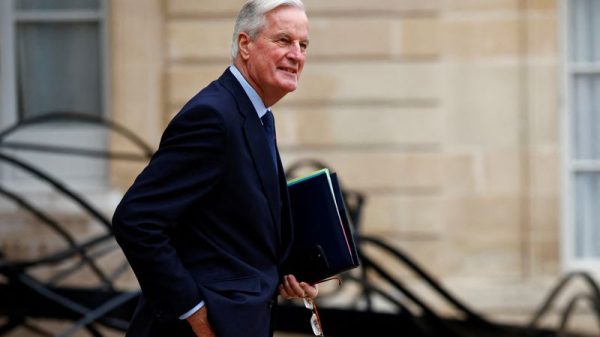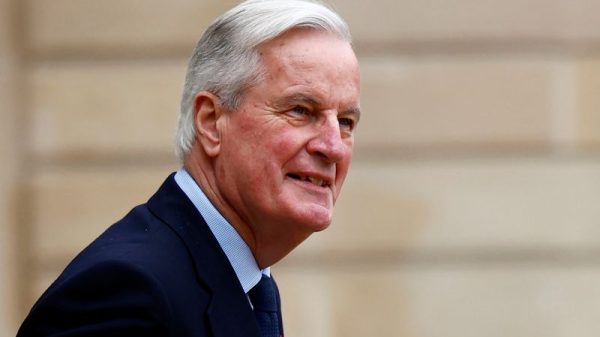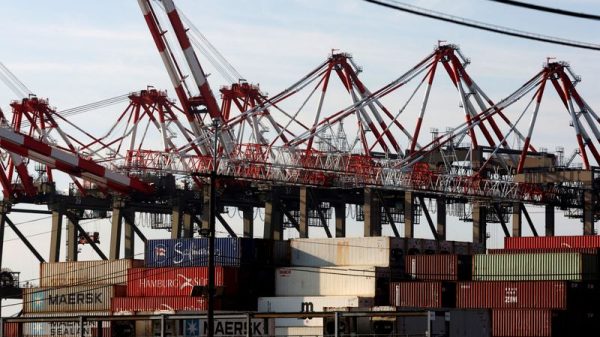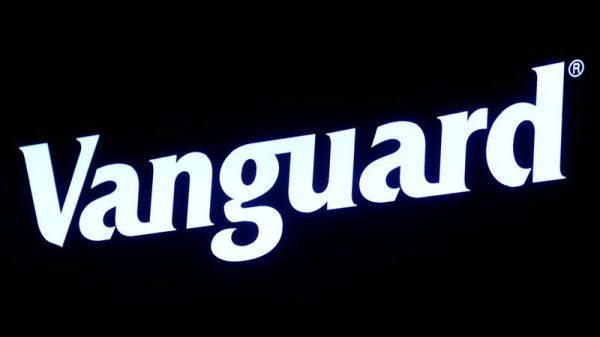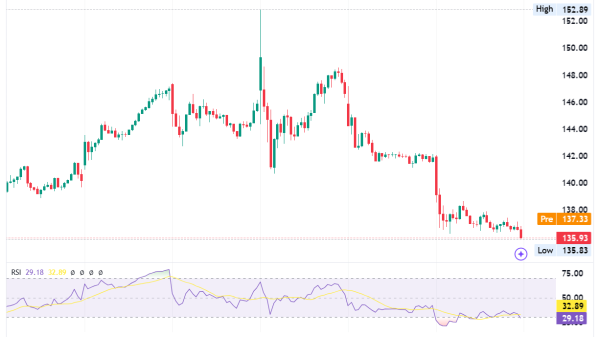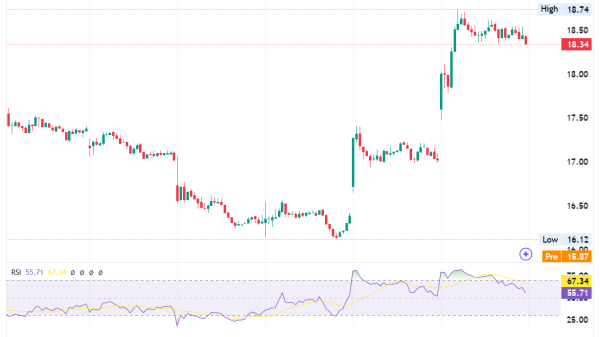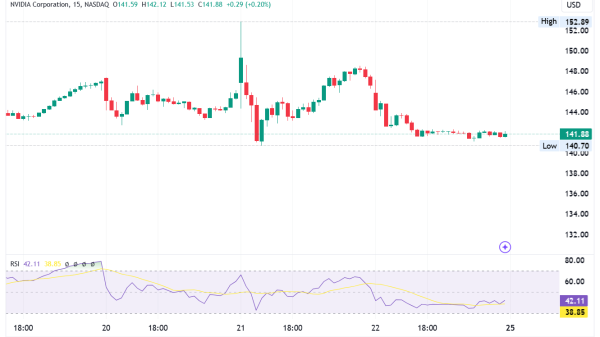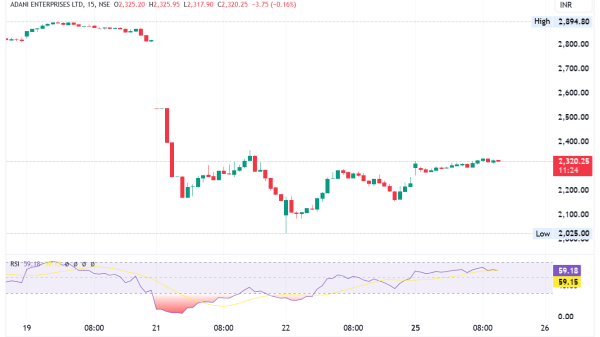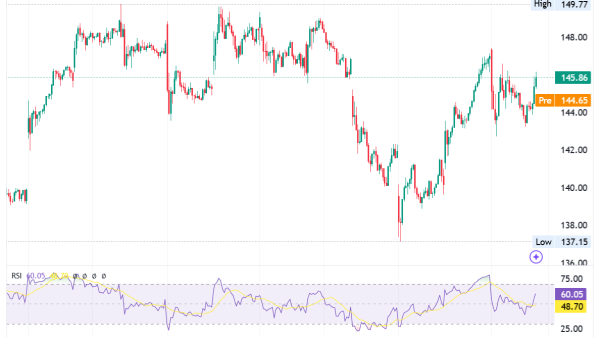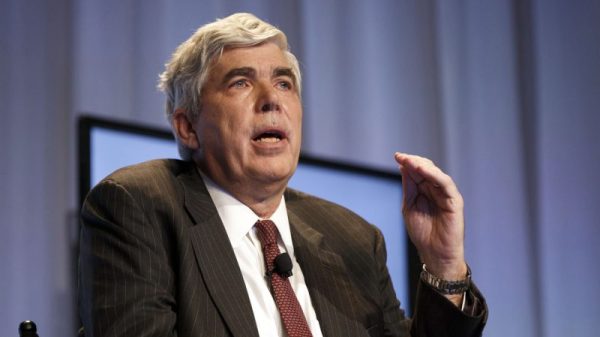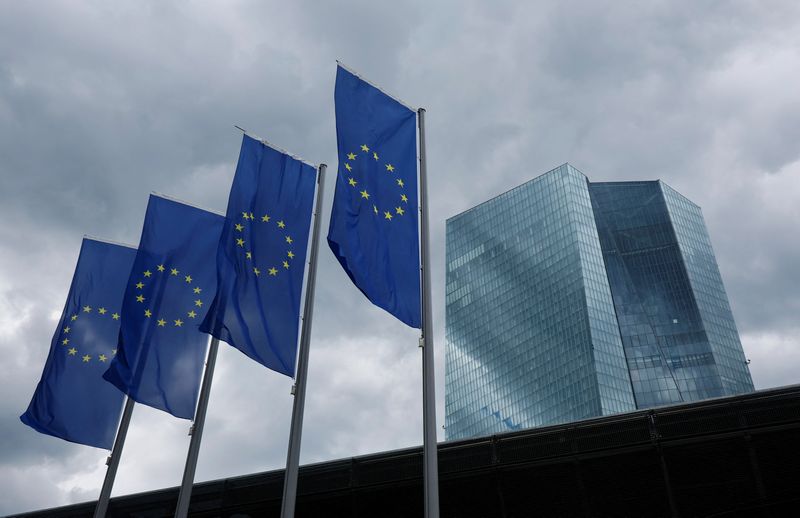By Yoruk Bahceli and Stefano Rebaudo
(Reuters) – The European Central Bank looks set to deliver another interest rate cut on Thursday it had little appetite to point to just weeks ago.
Data signal a euro zone economy in worse shape than when policymakers last met, boosting bets on speedier rate cuts than the quarterly pace June and September cuts suggested.
“If the ECB does not cut in October, the market will think that the central bank is behind the curve and potentially making a policy error,” said Deutsche Bank chief European economist Mark Wall.
Here are five key questions for markets:
1/ Will the ECB cut rates this week?
All but certainly. Traders are banking on around a 90% chance of a 25 basis-point cut, a huge increase from as low as 20% when the ECB met last month.
Euro zone business activity that unexpectedly contracted in September led to a surge in October bets, as investors feared that the ECB, so far sticking to its data-dependency mantra, may not cut rates quickly enough.
Several policymakers have already made the case for an October cut. Even ECB chief Christine Lagarde has hinted at one, saying confidence in falling inflation would be reflected in the bank’s decision.
2/ Is this the start of back-to-back rate cuts?
Yes, Wall Street economists reckon.
And traders are pricing in just over three cuts at the four meetings following October.
ECB policymakers, however, are not quite there yet. Centrist Finnish governor Olli Rehn has repeated the message that the pace and scale of further cuts will be decided meeting by meeting.
But Lagarde may hint that a change is coming, pointing to projections the bank will release in December, said AXA’s chief economist Gilles Moec.
“The December meeting is probably the right moment to really change the narrative on the future.”
3/ Is inflation no longer a worry for the ECB?
Traders think so. After all, inflation, which surged over 10% two years ago, dropped below the ECB’s 2% target in September.
Even stubborn services inflation, a particular worry for the ECB, dropped slightly. On a monthly, seasonally-adjusted basis, it slowed to its weakest since November 2023, according to Nomura.
Derivatives used to hedge inflation risk suggest price growth will hold below 2% from the first quarter of next year, according to data compiled by Danske Bank, much faster than September’s ECB projections.
Even arch-hawk Isabel Schnabel has dropped her long-standing warning about the difficulty of taming price growth.
Yet services inflation is still at 4%, not dropping this year, and September’s headline drop was driven by energy prices, so the ECB isn’t quite declaring victory yet.
4/ Is growth the ECB’s main concern now?
It’s an increasing one.
But the ECB, unlike the U.S. Federal Reserve, only targets inflation, so the question is whether stagnation could tip it persistently below target – the bank’s main challenge in the pre-pandemic decade.
So far, the ECB is banking on rising real incomes boosting consumption and growth, to 1.3% next year from 0.8% this year, an assumption some economists fear is too optimistic. Germany’s economy is already facing a second year of contraction.
AXA’s Moec said that if the anticipated rebound didn’t materialise soon, inflation risked undershooting the ECB’s target – a concern some policymakers share.
5/ Are geopolitical risks worrying for the ECB?
Yes, but more from a growth perspective, economists reckon.
Oil prices have risen over 9% since the start of October as the Israel-Hezbollah conflict escalates, but remain more than $10 below this year’s peak.
Low inflation means the ECB can tolerate any temporary energy-driven rises, said BNP Paribas (OTC:BNPQY)’ chief Europe economist Paul Hollingsworth.
“The ECB’s reaction function has shifted to focus a bit more on growth risks now, so (geopolitical risks) will just exacerbate some of their concerns.”
Crucially, Thursday is the ECB’s last meeting ahead of November’s U.S. presidential election.
If former Republican President Donald Trump were to win and follow through with a pledge to slap 10% tariffs across imports, that would hit euro zone growth and boost the case for deeper rate cuts, economists said.

